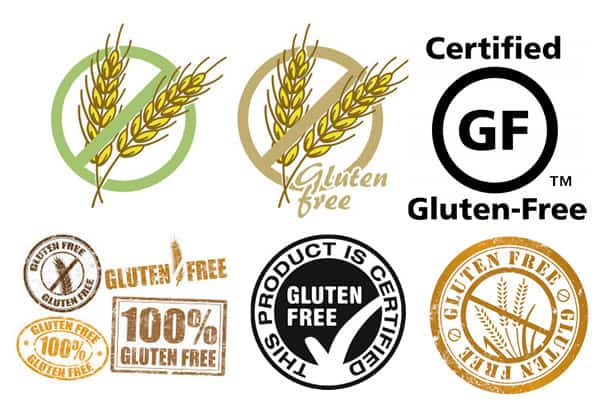Gluten Free Antibiotics Reviewed – Benefits and How to Use Them
Sometimes referred to as gluten-sensitive enteropathy, celiac disease, or celiac sprue is the reaction a good percentage of people have to eating gluten.
While gluten free antibiotics and foods have become quite popular in recent days, you might still be wondering what the fuss is all about. Let’s take a quick look at gluten, why gluten free antibiotics are a big deal now, and the benefits of using gluten free antibiotics.
What Is Gluten?
Gluten is the protein found in foods such as barley, wheat, and rye.
For most people, having gluten in their food isn’t a problem at all. However, for people who have celiac disease or gluten intolerance, eating anything with gluten can cause an immune response in their small intestines. With time, this response leads to damage to the lining of the small intestines, preventing them from absorbing some important nutrients (malabsorption).
Furthermore, this damage can cause:
- Anemia
- Bloating
- Weight loss
- Diarrhea
- Fatigue
It can also lead to a host of health complications in these individuals. When malabsorption occurs in children, it can cause more than just these symptoms; it can negatively affect their growth.
Another interesting read: Impact of Gluten on Gut Health
Gluten Free Antibiotics
Legally, the FDA requires food manufacturers to label their products and highlight whether they have gluten ingredients that might cause allergic reactions in some people, making most foods safe for people who have celiac disease.
However, there are no such requirements when it comes to medication. Unfortunately, most medications, including prescription medications, have typical allergens such as gluten in them. For people suffering from celiac disease, taking an antibiotic that isn’t gluten free can compound their medical issues.
In addition, because there are no legal labeling requirements, it can be quite difficult for people with celiac disease to know which antibiotics are safe to take and which have gluten content.
Are My Antibiotics Gluten Free?
The good news is that the FDA says most medications are, in fact, gluten free, which means that you will very rarely run into antibiotics that aren’t gluten-free. That, however, doesn’t mean that you can’t.
For that reason, people who have celiac disease or a gluten allergy need to know how to identify gluten free antibiotics.
Here are some tips that can help you identify gluten free medication, including antibiotics:
What the medication looks like
If your medication is translucent or liquid that is clear in color, then there’s a very good chance that it is gluten free. That’s because all translucent liquids are starch-free. However, if you are taking pills, you would have to do some more research.
Check the ingredients label
Most medications, such as antibiotics, typically have the same active ingredients. The difference often occurs when different manufacturers include various inactive ingredients; this is where gluten might come into the mix. Read the ingredients label carefully.
If you find that it has corn starch as opposed to wheat, then you might be safe but keep reading. In some cases, you might get medication that doesn’t come in the original box or packaging.
Should this happen, you can either ask your pharmacist for the package insert with the ingredients label or research the particular drug online by visiting websites such as Daily Med, which has a reliable database of medication ingredients.
Keep an eye out for gluten-containing ingredients
While wheat, rye, and barley are the most commonly known gluten-containing foods, some might slip under the radar. Keep an eye out for modified starch (especially those with no specified source), pregelatinized starch (with unspecified source), dextrates, dextrin, dextrimaltose, and caramel coloring.
Give the manufacturer a call
Simply contacting the manufacturer and finding out what they put in that specific antibiotic is a good way to go.
The Best Gluten Free Antibiotics
As mentioned, there’s a good chance that the antibiotics you are taking are gluten free, but it’s always best to be safe than sorry. With that in mind, here are a few of the best antibiotics without gluten:
- Amoxicillin by Teva Pharmaceuticals: This is completely gluten free
- Cephalexin: Even though it contains sodium starch as part of the ingredients, this starch has been chemically processed, so the chances of any gluten remaining are very unlikely
- Ciprofloxacin: This contains corn starch which has no gluten
The Benefits of Using Gluten Free Antibiotics
The benefits of using antibiotics, whether they are gluten free or not, remain the same. These include:
- Antibiotics are designed to help slow down the progression and even kill many different types of infections
- Antibiotics help with the prevention or the onset of infections occurring, particularly when administered before or after surgery
- Antibiotics work fast; many start working within hours of being administered
- Most antibiotics are quite easy to take. In many cases, you can either be injected or given a syrup or tablets to take
One of the biggest advantages of taking antibiotics with no gluten containing ingredients is that they are safe for people with celiac disease and gluten sensitivity. Additionally, these gluten free antibiotics rarely, if ever, cause any kind of allergic reactions in almost every patient.
How to Use Gluten Free Antibiotics
Like every other medication, when misused, antibiotics can have deadly effects. That’s why it’s important to know exactly how to use your antibiotics and other gluten free drugs. Here are some tips on safe antibiotic use:
- Take them exactly as prescribed and directed by your doctor
- Don’t ever share your antibiotics with friends, family, or others
- Don’t presume you can always save your antibiotics for future use
- Talk to your doctor as well as a pharmacist on how to safely dispose of your antibiotics
If you have celiac disease, gluten sensitivity, or aren’t quite sure how gluten will affect your digestive system, the best course of action is to go for gluten free medication, especially when it comes to antibiotics.
The tips included here will help you identify the best antibiotics without any gluten, show you how to use them, and the benefits of doing so as directed by your doctor, while learning how to avoid uncomfortable gastrointestinal symptoms. Antibiotics are some of the most powerful types of medication and should be treated with the care they command.
Disclaimer: While our team of medical expert writers makes every effort to convey the correct, relevant, and most up-to-date information, you should never disregard advice given to you by your medical practitioner or delay seeking medical assistance because of something you have read on Gutsify or received in correspondence from Gutsify. Please refer to our Terms and Conditions.








